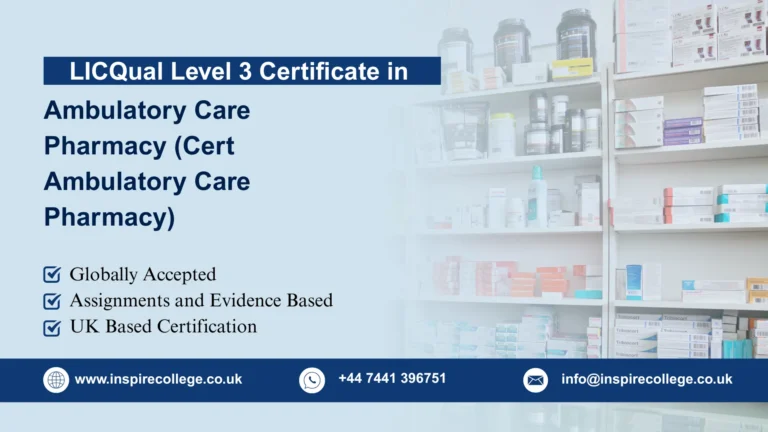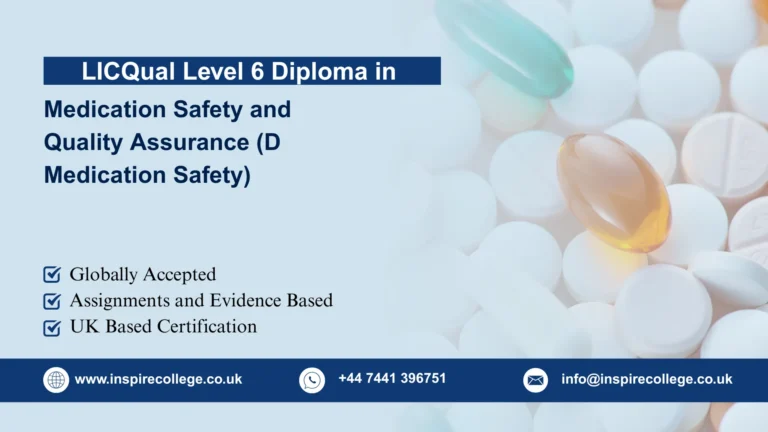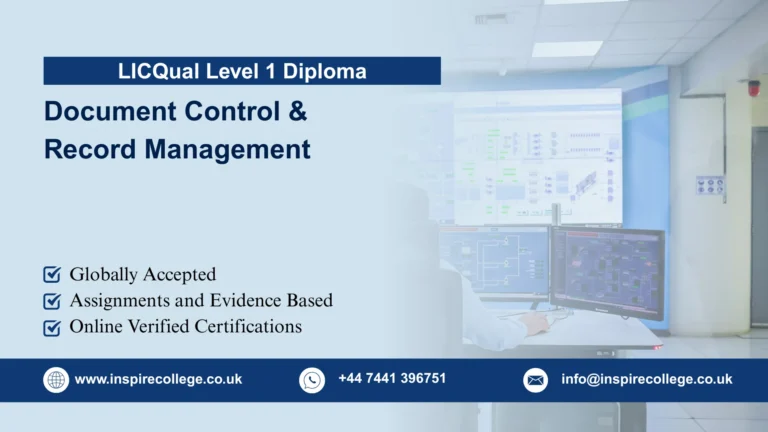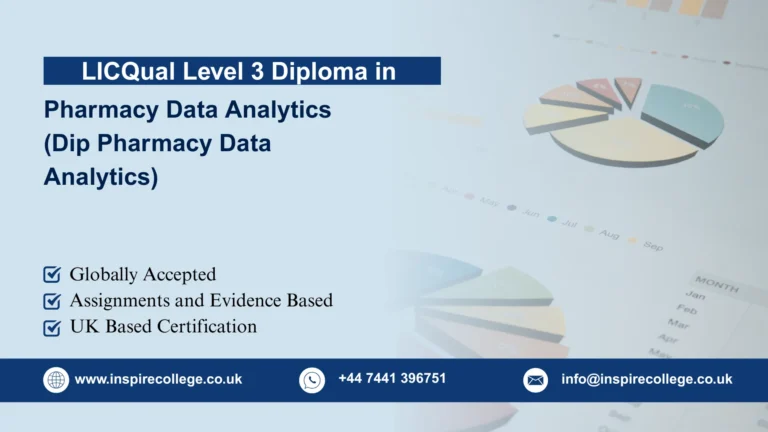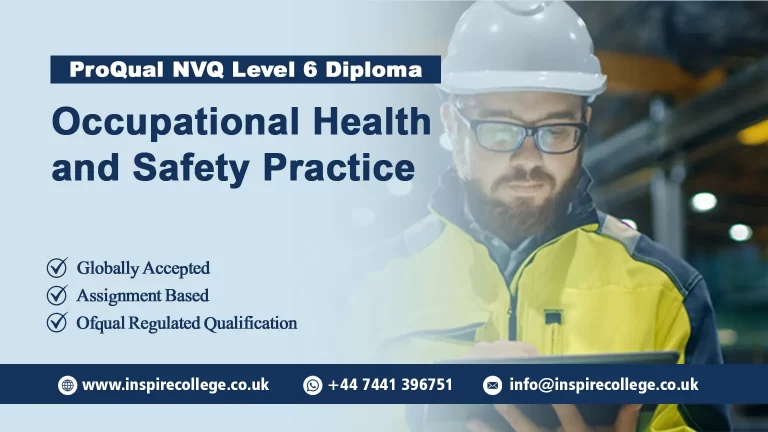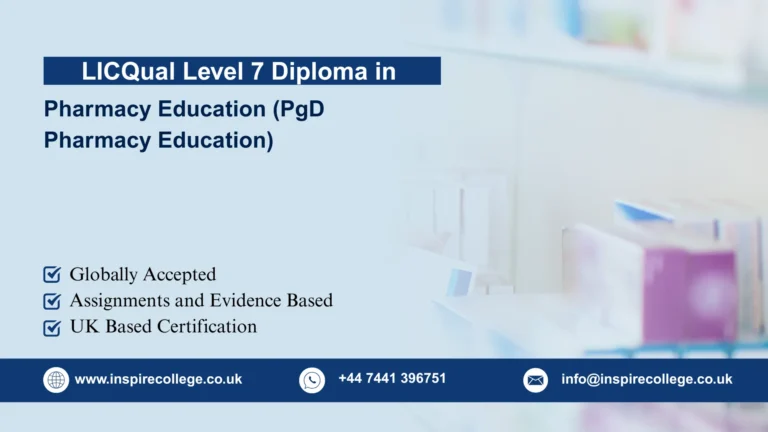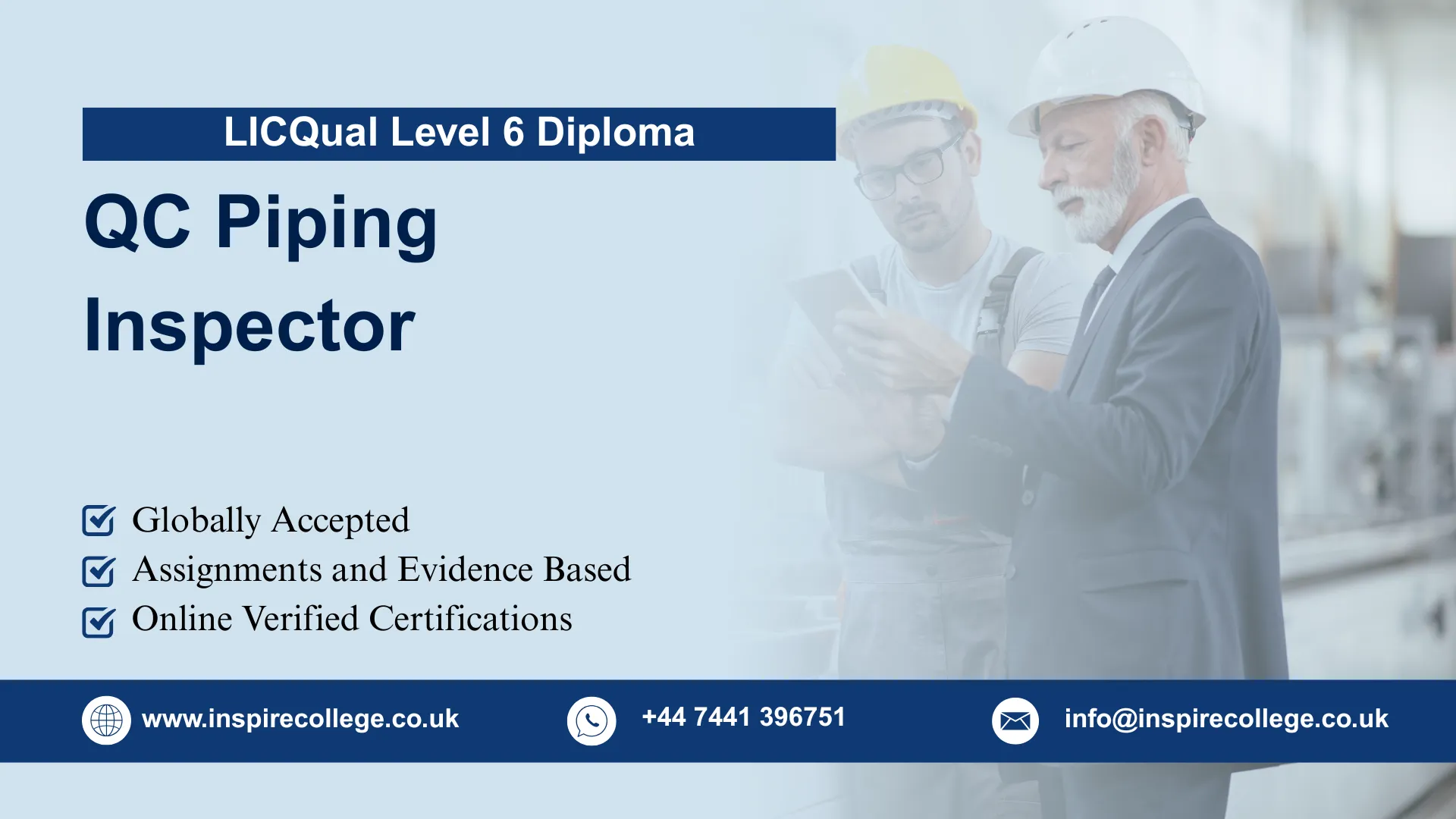
LICQual Level 6 Diploma in QC Piping Inspector
In today’s highly regulated industrial and construction sectors, the quality, safety, and reliability of piping systems are critical for operational efficiency, risk management, and regulatory compliance. The LICQual Level 6 Diploma in QC Piping Inspector is an advanced, professionally designed program aimed at equipping experienced professionals and aspiring senior inspectors with the knowledge, technical skills, and practical expertise needed to excel in industrial piping quality control, inspection, and quality assurance roles.
LICQual Level 6 Diploma in QC Piping Inspector provides a thorough understanding of advanced piping design principles, fabrication, installation processes, and inspection techniques. Learners will develop the ability to interpret complex engineering drawings and isometric diagrams, select and evaluate appropriate materials for high-pressure and high-risk applications, and implement comprehensive quality control measures to maintain system integrity. LICQual Level 6 Diploma in QC Piping Inspector also emphasizes advanced non-destructive testing (NDT) techniques, welding inspection, and alignment verification, enabling graduates to detect defects, prevent failures, and ensure compliance with international standards such as ASME, API, ANSI, and ISO.
Participants will gain practical experience in project-based QA/QC management, risk assessment, regulatory auditing, and documentation processes. Emphasis is placed on maintaining traceable quality records, preparing detailed inspection reports, and applying corrective and preventive measures in real-world scenarios. The curriculum integrates case studies and hands-on exercises, fostering problem-solving, analytical thinking, and leadership skills necessary for supervising complex piping projects and multidisciplinary teams.
By completing LICQual Level 6 Diploma in QC Piping Inspector, learners will be prepared to take on senior QA/QC roles, lead quality management initiatives, and contribute to the success of large-scale industrial and engineering projects. The LICQual Level 6 Diploma in QC Piping Inspector not only strengthens technical expertise but also provides internationally recognized credentials, enhancing career advancement, employability, and opportunities to work on global infrastructure, oil & gas, and industrial projects.
The LICQual Level 6 Diploma in QC Piping Inspector is designed for professionals aiming to gain advanced knowledge and skills in industrial piping quality control, inspection, and QA/QC management. To ensure learners are fully prepared to engage with the course content and apply practical expertise effectively, the following entry requirements are recommended:
- Age Requirement:
- Applicants must be at least 18 years old.
- This ensures learners have the maturity, responsibility, and professional readiness needed to participate in technical instruction, hands-on exercises, and project-based learning effectively.
- Educational Requirements:
- Candidates must hold a Level 5 qualification or an equivalent credential in engineering, quality control, or a related technical field.
- This foundation provides critical knowledge of mechanical engineering principles, piping systems, and industrial processes, essential for understanding and applying advanced QA/QC procedures in industrial settings.
- Professional Experience:
- A minimum of two years of relevant industry experience is required.
- Suitable experience includes work in piping inspection, QA/QC roles, project supervision, or related positions within industrial, construction, or engineering environments.
- Practical experience allows learners to connect theoretical knowledge with real-world applications, enhancing competence in inspection techniques, defect identification, compliance monitoring, and quality assurance processes.
- English Language Proficiency:
- Candidates should demonstrate strong skills in reading, writing, and comprehension of English.
- Effective language proficiency ensures learners can interpret technical documentation, prepare accurate inspection reports, communicate with project teams, and successfully complete course assessments.
By fulfilling these entry requirements, learners are well-prepared to maximize the benefits of the LICQual Level 6 Diploma in QC Piping Inspector, gaining advanced technical expertise, practical skills, and professional credentials. This qualification enables participants to progress into senior QA/QC roles, lead complex inspection projects, and contribute effectively to industrial and engineering initiatives.
Mandatory Units
The LICQual Level 6 Diploma in QC Piping Inspector, achieve the qualification candidates must achieve all of the mandatory units:
Mandatory Units
By the end of LICQual Level 6 Diploma in QC Piping Inspector, learners will be able to:
- Advanced Piping Inspection Strategies and QA/QC Management
Develop and implement advanced piping inspection strategies to ensure the integrity, reliability, and compliance of complex piping systems. Lead QA/QC management processes by integrating quality assurance plans into project workflows, aligning inspection protocols with project objectives. Evaluate the effectiveness of inspection strategies using data-driven analysis and continuous improvement methodologies. Collaborate with multidisciplinary project teams to maintain high-quality outcomes in industrial piping projects. - Non-Destructive Testing (NDT) Methods and Interpretation
Apply advanced non-destructive testing (NDT) techniques, including phased array ultrasonic testing, computed radiography, and eddy current testing, to assess piping system integrity. Accurately interpret NDT results to detect critical defects, evaluate their impact on system safety, and determine appropriate corrective actions. Design customized NDT plans for specific piping projects, ensuring compliance with international standards and optimizing inspection efficiency. Implement best practices for safe, reliable, and effective NDT operations within QC inspection workflows. - Welding Procedure Qualification and Welder Certification Audit
Assess welding procedure specifications (WPS) and procedure qualification records (PQR) to ensure adherence to international codes and standards, such as ASME and API. Conduct thorough welder certification audits to verify competency and compliance with approved welding procedures. Identify deficiencies in welding practices or documentation and develop corrective measures to uphold piping quality. Prepare detailed audit reports and documentation to support regulatory compliance and quality control initiatives. - Risk-Based Inspection (RBI) and Failure Analysis in Piping Systems
Perform comprehensive risk-based inspections (RBI) to prioritize inspection activities based on potential hazards, failure modes, and operational risks. Conduct root cause analysis of piping defects or failures and propose effective preventive measures. Develop risk mitigation strategies to enhance the reliability, safety, and lifespan of piping installations. Integrate RBI principles into quality control frameworks to improve inspection efficiency and project performance. - Quality Audits, Compliance, and International Regulatory Frameworks
Plan and execute thorough quality audits to verify adherence to international standards (e.g., ASME, API, ISO), regulatory requirements, and project specifications. Analyze audit outcomes to identify non-conformities and implement corrective actions. Interpret and apply international regulatory frameworks to ensure legal and contractual compliance in piping projects. Provide guidance to project stakeholders on best practices, regulatory obligations, and compliance strategies to mitigate project risks. - Capstone Project: Comprehensive QC Inspection Plan for a Live or Simulated Piping Project
Design and implement a full-scale QC inspection plan for a live or simulated piping project, integrating advanced QA/QC methods, NDT techniques, risk-based inspections, and welding audits. Prepare detailed inspection reports, quality records, and corrective action documentation to maintain project traceability and compliance. Demonstrate leadership and project coordination skills by managing QC inspection processes, collaborating with project teams, and ensuring the successful achievement of project objectives in real-world or simulated industrial settings.
In today’s highly regulated industrial and construction sectors, maintaining the quality, safety, and reliability of piping systems is critical for operational efficiency and regulatory compliance. The LICQual Level 6 Diploma in QC Piping Inspector is a comprehensive advanced program designed to equip professionals with the skills, knowledge, and practical expertise required to excel in industrial piping inspection, quality control, and QA/QC management. LICQual Level 6 Diploma in QC Piping Inspector emphasizes international standards, advanced inspection techniques, and risk-based quality management, ensuring learners can confidently lead quality assurance initiatives in complex industrial projects.
Experienced QC Piping Inspectors: Professionals already working in inspection roles who want to enhance their technical expertise and progress into senior QA/QC positions.
Mechanical and Piping Engineers: Engineers involved in the design, supervision, or execution of piping systems seeking advanced QA/QC competencies to ensure compliance and system integrity.
Project Managers and Site Supervisors: Individuals overseeing piping projects who require a comprehensive understanding of inspection standards, regulatory compliance, and quality assurance practices.
Welding Inspectors and NDT Professionals: Specialists aiming to expand their skills to include advanced piping inspection, quality control planning, and risk-based inspection techniques.
QA/QC Managers and Coordinators: Mid- to senior-level professionals looking to formalize their experience and acquire internationally recognized credentials for leadership roles in quality management.
Consultants and Contractors: Independent professionals or organizations delivering piping inspection services seeking alignment with global QA/QC standards and best practices.
HSE and Compliance Officers: Safety and compliance professionals who wish to integrate quality control expertise into operational oversight, risk management, and regulatory compliance processes.
Trainers and Technical Instructors: Educators and in-house trainers aiming to deliver high-level QA/QC training based on industry-leading methodologies and internationally recognized standards.
Professionals Pursuing International Careers: Individuals targeting global opportunities in the industrial, oil & gas, or infrastructure sectors where advanced QA/QC qualifications are essential for career advancement.
Future QA/QC Leaders: Candidates preparing to take on leadership, auditing, or management responsibilities within QA/QC departments of large-scale industrial projects.
Register Now
FAQs for LICQual Level 6 Diploma in QC Piping Inspector

